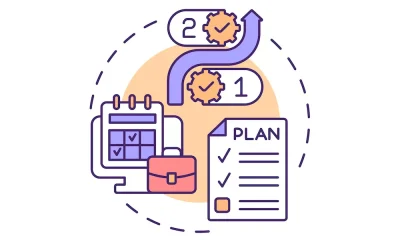Accounting & Finance
Why Businesses Still Use Excel

Are you wondering how so many companies do so much with their data? The most likely answer is that those companies use Microsoft Excel.
Your next question may be, why Excel and not Google sheets? Well, the answer is that Sheets and Excel are popular, and each spreadsheet tool has pros and cons, so it comes down to personal preference.
This business blog article considers some of the benefits of using Microsoft Excel to help run your business to make it worth the subscription.
1. Improve Productivity
Analyzing data is vital for any business that wants to succeed today. There is more data than ever, and you can be sure your competition is making the most of it.
Using Excel for your small business means you can more efficiently analyze this information. Adding information to spreadsheets allows you to sort, filter, and input your information quicker than you could otherwise.
2. Organizing and Storing Data
Excel allows for the creation of organized spreadsheets that can store large amounts of data in a readily accessible manner.
3. Visualize Your Data
Reporting and presentation are easier with Excel. Businesses can create charts, graphs, and other visual aids to communicate and present data effectively.
While it’s possible to analyze your information with text, it isn’t always ideal. Many people work better when they see visuals. Excel makes this easy.
Visuals will give your team and customers a quick overview that allows them to understand the data in your spreadsheets.
4. Online Collaboration
Spreadsheets have come a long way over the past decade. You used to rely on computer desktops to run this software. While this worked great for the time, it did have limitations regarding sharing.
One of the best Excel for businesses benefits today is the ability to work on your spreadsheets in the cloud. Your team can access your spreadsheets from anywhere in the world.
With remote work on the rise, it’s an investment worth investigating. Excel allows multiple users to access, edit and update a single document, making it easy for teams to collaborate and work together on a project.
5. Keep Data Consistent
There’s nothing worse than having data in different formats when you analyze it. Your data needs to be in the same format if you want a proper analysis. This includes dates, currency, and decimal places.
Excel allows you to do this by setting a base format for each data column. You set your preference in your column settings, and Excel will apply the same data format to each value in the column.
6. Connect to External Data
Databases and other data storage mechanisms are common today. Even small businesses can use them with other software they use. The question is, can you use this data in other applications?
One of the best Excel hacks for your small business is connecting to other data sources. Instead of manually inserting data in your spreadsheet, you can connect to another database and automatically import your information. This feature saves your company the money you would spend hiring a developer to create custom reporting.
7. Data Analysis
Excel provides various tools and functions to perform data analysis, such as sorting, filtering, and using pivot tables to quickly summarize and analyze data.
8. Budgeting and Forecasting
Once again, it is with Excel that budgeting can be simplified. You can use Excel to create budget and financial models to help make informed decisions.
9. Automation
Automation in business is one digital transformation strategy that improves productivity and efficient use of resources. Excel macros can automate repetitive tasks, saving time and increasing efficiency.
10. Customization
Excel allows for customization and personalization, making it a flexible tool that can be adapted to meet specific business needs.
Don’t Ignore the Benefits of Excel
You need all the time to work on the essential parts of your business. The more time you spend doing manual analysis, the less time you have to work on other things. Don’t ignore the benefits of Excel and how much time its features will save.
Attempt to use more than the 5% of features more than 95% of users regularly utilize.
Excel is a superior product to Sheets, but you need to use more of it to realize the benefits for your business.
If you’re not on a subscription yet, consider Sheets, too, as it is a viable alternative to Excel, and its main attraction, especially for startups, is free.
Are you looking for more tools to help you run your company? Read our blog posts, including this one on data analysis.









